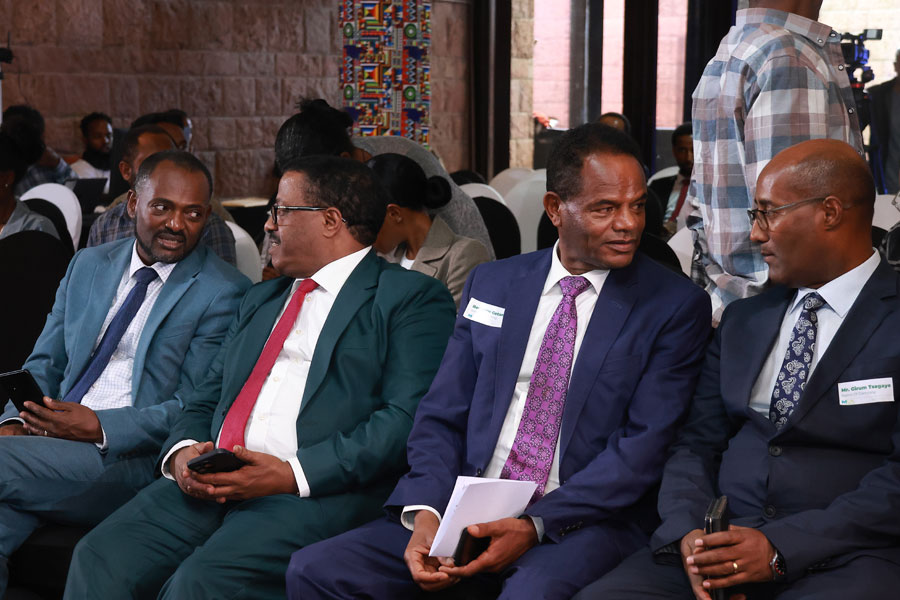
Commentaries | Oct 19,2019
Jul 13 , 2020
By Christian Tesfaye
It has been over a century, and Ethiopia is still teetering on the edge of dissolution. The reason for this depends on the people we ask, but the best answer probably is the reluctance by any political group to settle for anything less than hegemony.
It is even more tragic than it sounds since there is an assumption that this is normal. Many intellectual and political elites believe that the winner-take-all competition is only symptomatic of the expression of self and group interests and can be contained as long as there are institutions to check the contending parties’ excesses. But this is only true in as far as institutions emerge by some divine will, out of the blue, without the nurturing of those exercising power or contending for it.
There are two routes to democracy in Ethiopia right now. One is the observance of the rules of the game by the contending parties. In the over a century-old existence of modern Ethiopia, there have been few political groups with any kind of commitment to democratic ideals. Even today, if one gives a cursory look at the major political groupings, they are laughably unenthusiastic about it. They are glad to point out each other’s flaws in the process of breaking it themselves. Hypocrisy and a sense of irony are not words that exist in Ethiopia’s political dictionary.
The lack of commitment to democracy may be a symptom of the scarcity of support of the majority of Ethiopians for a political settlement where there is compromise. It is hard to claim that the principles of democracy - especially liberal democracy - are understood properly and espoused by the majority. We will not find many people denouncing it, as an abstract concept at least, but neither will we find many people that will endorse it at the expense of traditional, cultural and religious beliefs.
It is much easier to give lip service to gender equality for instance, but many will baulk at the way women’s financial and sexual autonomy inevitably shakes the traditional foundations of marriage.
The political groupings out there are thus responding to the general lack of enthusiasm by society for the consequences of democracy. Even if there is a political group that attempts to challenge its own supporters’ intellectual laziness, there will arise a radical faction accusing it of being a sellout. It is an un-winnable game.
The second route to democracy may be through the middle class. This is a gradual process and would require sustained economic growth under an open market system. When the regime becomes dependent for its survival on the resources the state derives from a large middle class and its legitimacy is underwritten by the political currency drawn from a strong economy, it is inevitable that strong economic institutions will be established. It is only through these institutions that economic competitiveness will be guaranteed.
From there, political institutions will necessarily be influenced to be autonomous as well. Strong economic institutions such as an autonomous central bank and a growing middle class will remain viable only if they are protected by the judiciary and parliament from the excesses of those mandated to execute state power.
Apart from the long, gradual process that creating a middle class entails, there is one major problem with this scenario. It may not work. China has shown that democracy does not necessarily follow a booming middle class. It is a sobering observation to Western analysts and pundits who had lobbied for the Asian giant’s integration into the global economy.
It is not clear how long China can keep up such a one-party system that roots out discontent and prosecutes diverging opinions while also ensuring long-term productivity and entrepreneurship. Perhaps this will be as long as the Soviet Union did, which sustained economic competitiveness, at least in the non-commercial sphere, for well over half a century. But it goes to show that we could wait for several decades with the hope of realising a democracy through the influence of the middle class - and it may or may not be for naught. It would still be a case of rolling the dice.
What Ethiopia has, thus, is a curse. On the one hand, we are stuck with political elites whose interests lay in the accumulation of power. This would have been fine if there were institutions that would temper hegemonic political self and group interest.
On the other hand, the political and economic institutions needed to chasten such behaviour have yet to spontaneously develop (bar experiences such as China) because of Ethiopia’s negligible middle class. As successive experiences have shown in Ethiopia, such institutions cannot be built by regimes simply because they may have an initial commitment to democracy.
Sooner or later, they abandon them as their hold on power is threatened. But these regimes may be forced into accepting the development of autonomous political and economic institutions as an exchange for a political legitimacy founded upon a strong and competitive economy. But such an economy has yet to be built in Ethiopia.
This is a grim reality: a head scratcher to say the least. There is no easy answer, and those who claim there is have yet to present practical solutions. If there was an easy answer, indeed, we would have found it by now.
PUBLISHED ON
Jul 13,2020 [ VOL
21 , NO
1055]


Commentaries | Oct 19,2019

Fortune News | Mar 09,2024

Commentaries | Jan 07,2024

Viewpoints | Apr 29,2023

Radar | May 21,2022

Viewpoints | Feb 09,2019


Commentaries | Sep 14,2019

Editorial | Jan 27,2024

Commentaries | Jul 30,2022

Photo Gallery | 175836 Views | May 06,2019

Photo Gallery | 166054 Views | Apr 26,2019

Photo Gallery | 156458 Views | Oct 06,2021

My Opinion | 136844 Views | Aug 14,2021

Dec 22 , 2024 . By TIZITA SHEWAFERAW
Charged with transforming colossal state-owned enterprises into modern and competitiv...

Aug 18 , 2024 . By AKSAH ITALO
Although predictable Yonas Zerihun's job in the ride-hailing service is not immune to...

Jul 28 , 2024 . By TIZITA SHEWAFERAW
Unhabitual, perhaps too many, Samuel Gebreyohannes, 38, used to occasionally enjoy a couple of beers at breakfast. However, he recently swit...

Jul 13 , 2024 . By AKSAH ITALO
Investors who rely on tractors, trucks, and field vehicles for commuting, transporting commodities, and f...

Oct 18 , 2025
The political establishment, notably the ruling party and its top brass, has become p...

Oct 11 , 2025
Ladislas Farago, a roving Associated Press (AP) correspondent, arrived in Ethiopia in...

Oct 4 , 2025
Eyob Tekalegn (PhD) had been in the Governor's chair for only weeks when, on Septembe...

Sep 27 , 2025
Four years into an experiment with “shock therapy” in education, the national moo...

Oct 18 , 2025 . By NAHOM AYELE
In a sweeping reform that upends nearly a decade of uniform health insurance contribu...

A bill that could transform the nutritional state sits in a limbo, even as the countr...

Oct 18 , 2025 . By SURAFEL MULUGETA
A long-planned directive to curb carbon emissions from fossil-fuel-powered vehicles h...

Oct 18 , 2025 . By BEZAWIT HULUAGER
Transaction advisors working with companies that hold over a quarter of a billion Bir...